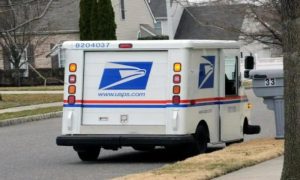Public health officials have said for months that, at some point, it’s likely fully vaccinated folks will need a COVID-19 booster shot. And now, it appears that time is finally here. With boosters of the two-shot Pfizer-BioNTech and Moderna vaccines expected to roll out starting next month, there’s a question many may be pondering: Can you mix COVID-19 vaccines? Meaning, if you had Pfizer the first time around, is it okay to get a Moderna booster, and vice versa? And, for the 14 million Americans who have been inoculated with the one-dose Johnson & Johnson vaccine, can they get mRNA vaccines (Pfizer-BioNTech or Moderna) for a booster? (See: How Effective Is the COVID-19 Vaccine?)
The answer, as you can imagine, is a little complicated. Here’s what you need to know about mixing COVID-19 vaccines.
First, a Quick Recap On Why You Need a COVID-19 Booster Shot
The Centers for Disease Control and Prevention and the Food and Drug Administration announced last week that people who received two doses of the mRNA COVID-19 vaccines should get booster shots eight months after their second dose.
The available data makes very clear that protection against SARS-CoV-2 infection begins to decrease over time following the initial doses of vaccination, and in association with the dominance of the Delta variant, we are starting to see evidence of reduced protection against mild and moderate disease,” said health officials from both agencies in a joint statement last week. “Based on our latest assessment, the current protection against severe disease, hospitalization, and death could diminish in the months ahead, especially among those who are at higher risk or were vaccinated during the earlier phases of the vaccination rollout. For that reason, we conclude that a booster shot will be needed to maximize vaccine-induced protection and prolong its durability.”
In short, if you have been fully vaccinated with either the Pfizer-BioNTech or Moderna vaccine, you’re due for a booster shot within the coming months. The booster shots will be offered to all Americans beginning Monday, September 20. Of those who will get the first boosters: health care providers, seniors, nursing home residents, and others who were among the first to be fully vaccinated, according to the CDC.
The folks who received the Johnson & Johnson vaccine will also likely need a booster shot, according to the CDC and FDA, but the verdict is still TBD pending clinical trial results. Johnson & Johnson announced this week that their COVID-19 booster offers an increased immune response and is currently discussing with health officials about the need for a booster of the J&J vaccine. (See: When Will a Johnson & Johnson Booster Shot Be Available?)
The announcement from the CDC and FDA didn’t make any mention of mixing vaccines. The CDC has also stated that the COVID-19 vaccines “are not interchangeable.” “Data on the safety and efficacy of a mixed-product series have not been evaluated. Both doses of the series should be completed with the same product,” says the organization on its website.
The CDC does include a caveat, though. While the agency says that in “exceptional situations” when you either don’t know which mRNA vaccine you got or the same brand is no longer available, “any available mRNA COVID-19 vaccine may be administered.” And, if you get a mixed series of the mRNA vaccine, the CDC says that you’re still considered fully vaccinated.
But, again, that’s for the original vaccination series. When it comes to booster doses, things are a little murkier. “There are ongoing studies to determine what the optimal mix-and-match strategy may be,” says Amesh A. Adalja, M.D., an infectious disease expert and a senior scholar at the Johns Hopkins Center for Health Security. However, he says, “the data looks promising and indicate this may be better than just giving people the same vaccine again.”
That said, if you’re going to mix vaccines, it makes more sense to get an mRNA vaccine booster on top of your mRNA vaccination series, says William Schaffner, M.D., an infectious disease specialist, and professor at the Vanderbilt University School of Medicine. “They’re very similar vaccines,” he says.
A quick refresher, the two-dose Pfizer-BioNTech and Moderna vaccines rely on messenger RNA to deliver instructions to the body to trigger an immune response against COVID-19. The one-shot Johnson & Johnson vaccine, however, uses an inactivated virus (an adenovirus, which causes the common cold) to carry out similar instructors to the body to combat the virus. (See: Everything You Need to Know About Johnson & Johnson’s COVID-19 Vaccine)
Given the Johnson & Johnson vaccine has a different makeup, things are a “little more complicated” in terms of mixing that with an mRNA vaccine, says Dr. Schaffner. “There’s no data in the U.S. on this,” he says. Europeans, however, have been getting a dose of the AstraZeneca vaccine, which is an adenovirus vaccine, followed by an mRNA vaccine. German Chancellor Angela Merkel, for example, got the Moderna vaccine after receiving the AstraZeneca vaccine. “It’s almost a matter of routine in Germany,” says Dr. Schaffner. “You get good immune response and it appears to be safe. Some people think you get a broader array of antibodies.”
A pre-print study published in The Lancet in June found that using a “mixed” schedule of vaccines created a higher immune response than using the same vaccine twice. Two pre-print studies from German researchers have had similar findings. But, when it comes to the booster shots, the effect of mixing vaccines is really “unknown,” says John Sellick, D.O., an infectious disease doctor and professor of medicine at the University at Buffalo. Dr. Adalja agrees. “There is more work to be done before this can be part of routine policy or recommended,” he says.
Dr. Sellick also points this out: “By the time booster shots come to pass, there will be enough supply of every vaccine for people to be able to get what they had before.”
If you’re able to get the same type of COVID-19 vaccine for your booster shot as you had for your original vaccination series, doctors say you should do just that. “That’s the straightforward recommendation,” Dr. Schaffner says. “If you can do that, perfect.”
The information in this story is accurate as of press time. As updates about coronavirus COVID-19 continue to evolve, it’s possible that some information and recommendations in this story have changed since initial publication. We encourage you to check in regularly with resources such as the CDC, the WHO, and your local public health department for the most up-to-date data and recommendations.







































